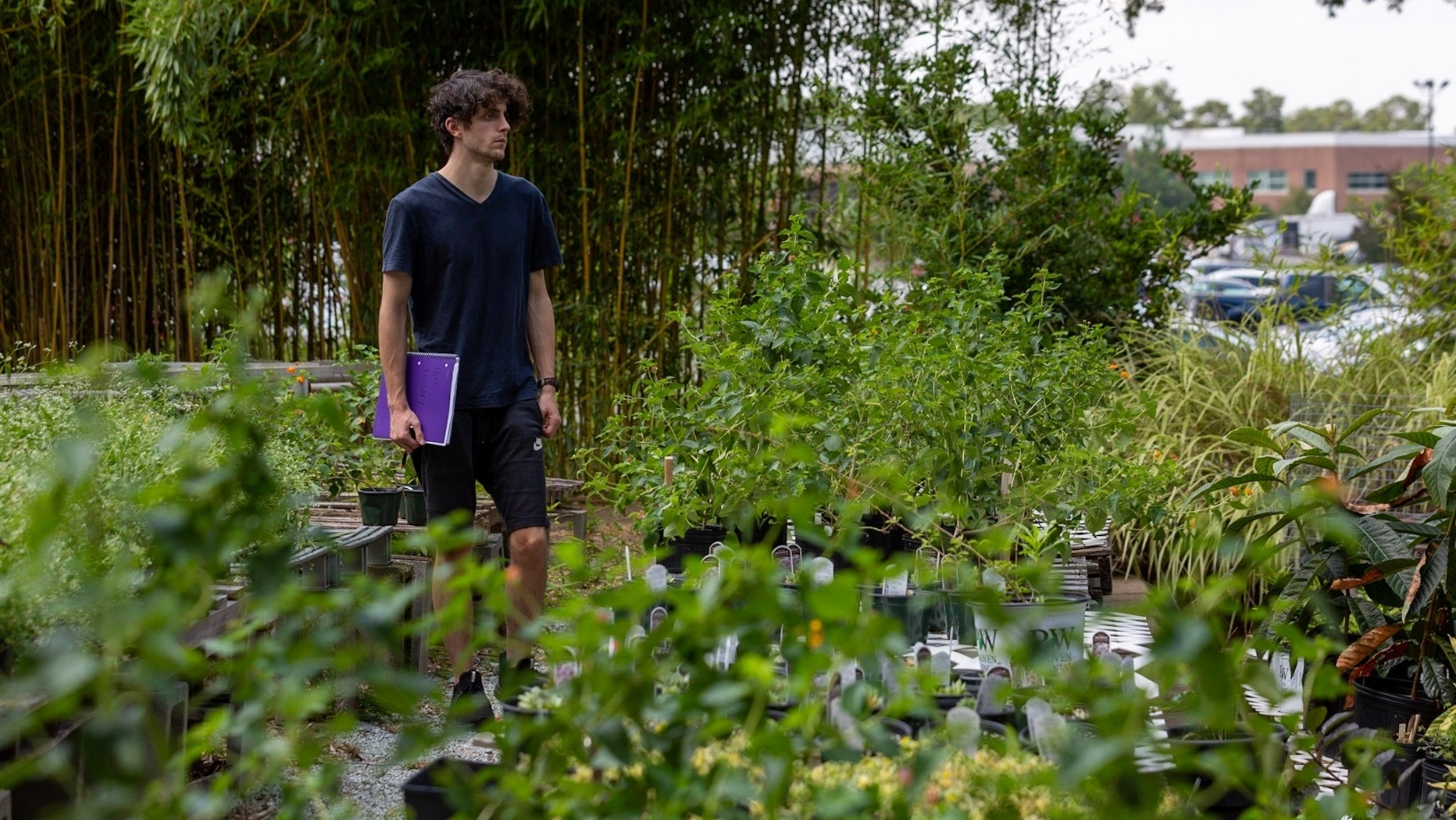
Environmental Horticulture
Design parks and outdoor spaces and advise on the care of vegetation and crops! Gwinnett Tech’s Environmental Horticulture program combines classroom time with real-world application to prepare you for your career in horticulture!
The Environmental Horticulture degree prepares students for careers in farming, floral design, landscape design, installation, management, greenhouse and nursery production, golf course management, floriculture and interiorscaping.
About
Horticulture is the science and art of growing and maintaining plants for food, enjoyment and improvement of the human environment. Environmental Horticulturalists work with plants, applying their knowledge to fruits, vegetables, ornamentals and non-food crops to maximize their health or growth. The environmental horticulture degree emphasizes a combination of horticulture theory and hands-on practical application necessary for successful employment.
What are my program options?
- Environmental Horticulture, AAS
- Environmental Horticulture Diploma
- Floral Designer Certificate
- GIS Technology Certificate
- Landscape Installation Technician Certificate
- Landscape Design Technician Certificate
- Sustainable Urban Agriculture Technician Certificate
More Info…
Take the first step towards a career in Environmental Horticulture and apply for next semester! Important dates and deadlines are listed to get you started and if you’re looking for ways to pay for your education, explore our scholarships for this program. You can also learn about our faculty and clubs and organizations to join!
Our Environmental Horticulture advisory board will provide you with relevant industry-specific curriculum for today’s high-demand careers.
Can I work while I learn?
Class schedules are designed to encourage student employment in the Environmental Horticulture industry while taking classes.
What does a horticulturist do?
A horticulturist is an expert in plant life and growth, using scientific knowledge to craft stunning landscapes and provide or oversee care and keeping of vegetation. They may advise growers on chemical-free methods of pest management, or reducing water and fertilizer use; work with landscape designers to create ecologically sustainable grounds; or consult on best practices. Horticulturalists may also have a bright future in cities, with a focus on creating sustainable “smart cities.”
Smart cities will need green roofs, rain gardens, and plenty of green space for a more sustainable and pleasant urban experience. Horticulturalists can help design, implement and maintain these aspects of tomorrow’s cities.
What career options will I have?
- Arborist
- Golf Course Management
- Landscape Contractor
- Nursery Manager
- Pest Control Advisor
- Sustainable Farmer
How much will it cost?
Gwinnett Tech offers affordability at $107 per credit hour + fees. Great opportunities for scholarships and financial aid with HOPE Grant, HOPE scholarship, HOPE Career Grants and more!












